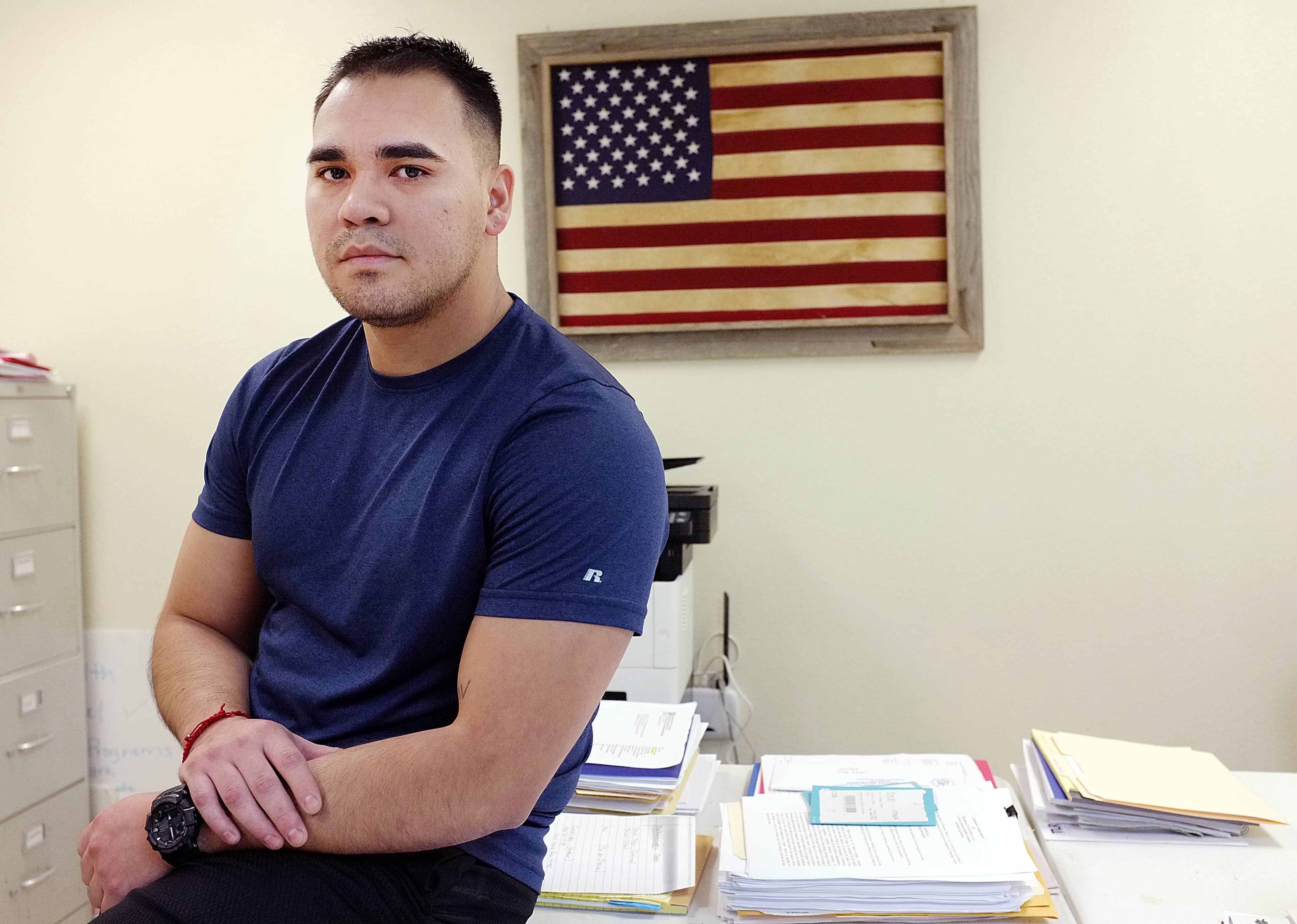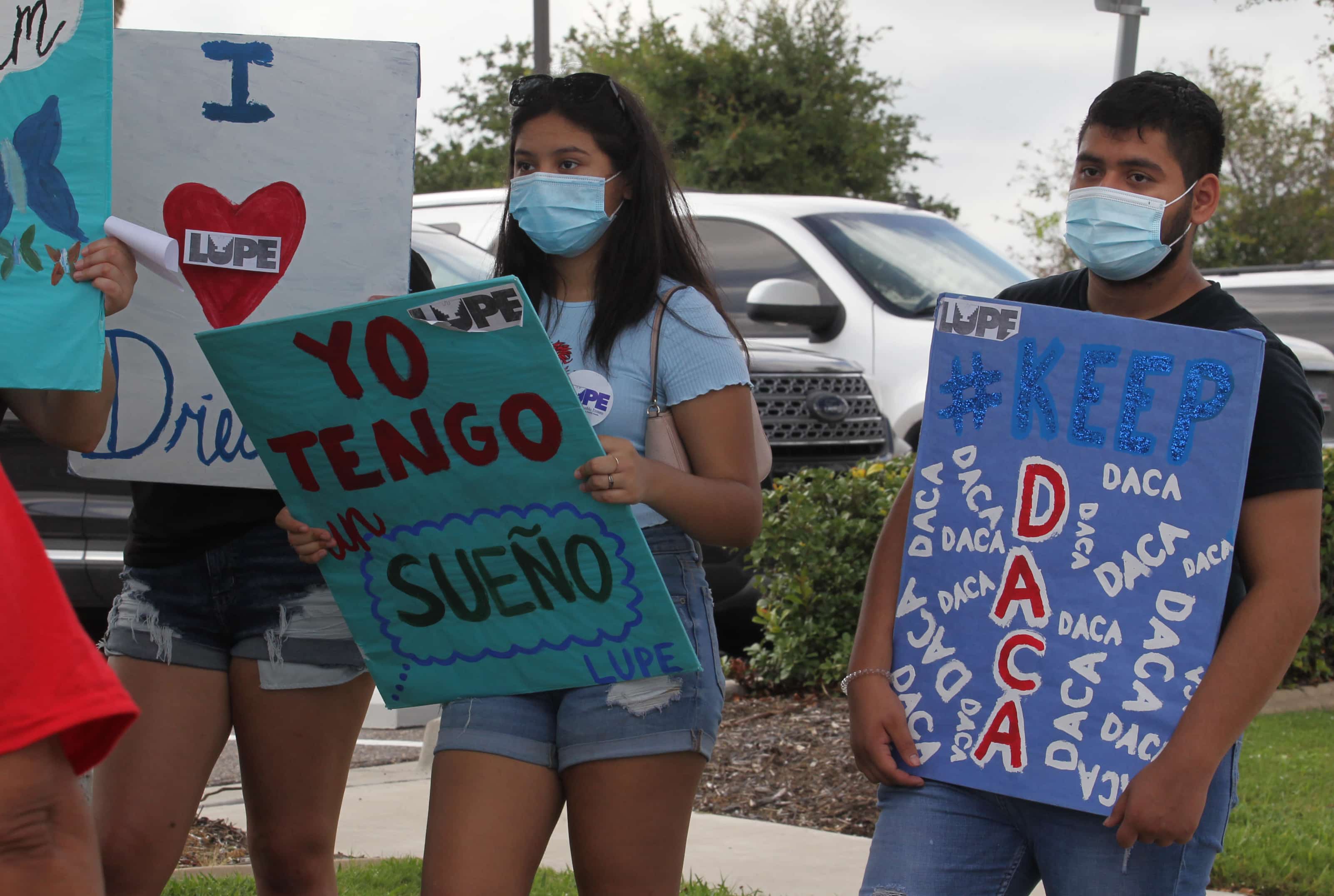Armando Arellano, like many who have had opportunities to build lives and careers for themselves in the United States thanks to protections from deportation, pondered his future this week should more rulings like the one a federal judge handed down more than a week ago be expected.
For recipients of the Obama-era Deferred Action for Childhood Arrivals program, better known as DACA, uncertainty has pervaded for several years. Armando is no exception.
And now that U.S. District Judge Andrew S. Hanen ruled on July 16 that the program was unlawful, it halted any future applications from being approved for individuals like Armando, who has already educated himself thanks to the program’s protections, and has since served as an ICU nurse during one of the country’s most dire health emergencies in COVID-19.
While renewals can continue to be approved for those with existing protections, the ruling has once again thrown hundreds of thousands of recipients into the unknown.
“Because of everything that was going on my future was very uncertain,” Armando, 26, said Tuesday. “I couldn’t go for a long-term career knowing that in a year or two years from now my DACA could get revoked. My life with DACA has been, ever since I got it, it’s been a constant fear of what’s gonna happen.
“I’m always looking forward to as long as I renew my DACA within those two years, I guess I’m free.”
DACA provides young immigrants who were brought to the U.S. without documentation as children, also known as Dreamers, immunity against deportation and also grants work permits.
While the ruling does not directly affect current DACA recipients who have two-year renewable work permits, many are considering it a warning for what is to come.
The decision means yet another period of waiting for many, as their futures hang in the balance.
A registered ICU nurse who was only 11 years old when he arrived in the U.S., Armando has been riding the rollercoaster of DACA decisions from the beginning when former President Barack Obama created the program in 2012.
From being one of the first recipients into the program, to now using his degree to help combat the worst public health crisis of a generation as one of the healthcare members on the front lines of the pandemic, Armando has taken full advantage of the program’s capabilities.
ARMANDO’S STORY

A Pharr resident, Armando began his higher education journey as a criminal justice major at South Texas College with dreams of becoming a police officer. His dream, however, was short lived when he learned that he needed to be a U.S. citizen.
Reluctantly, Armando dropped out of college to support his family by working in the refineries, a job he views as a privilege with his DACA status because it allowed him to travel the country.
For the first time he had money, and was determined to pursue some kind of education, DACA permitting.
He decided on a career in the medical field and graduated with his associate’s degree in January 2020 as an RN — just a few months before the first cases of COVID-19 were confirmed in his home community of the Rio Grande Valley.
Later that summer, area hospitals were overwhelmed, and medical staffs everywhere needed all the help they could get.
Armando worked on the front lines of the pandemic in the ICU, at one point in El Paso to offer his services to the community that was being most affected at the start of the pandemic, and then back in the Valley when numbers began to spike last year.
He is currently working at two different hospitals because he said he feels he has to work every day as if it was his last.
“I feel like I’m in a time bomb and I cannot waste a single night off because I know that it’s not like everyone else, that they’ll have another year to work and another year and another,” Armando said. “I feel like I’m on the clock.”
He said he is afraid he will regret not working as hard as he can if he one day loses his DACA status.
“You go back to nothing where your education doesn’t count, your years of going to school doesn’t count, you’re no longer an RN, you’re no longer a nurse and you can’t work,” Armando said.
If all goes accordingly, Armando plans to gain his bachelor’s degree from the University of Texas at Arlington to become a certified registered nurse anesthetist and continue working in the ICU to help get him and his younger sister through college.
Despite the fear of the unknown, Armando described himself as “one of the lucky ones” because he’s made it this far.
Others like Gissel Medina, a three-year criminal justice student at UTRGV who has waited years in anticipation of becoming a DACA recipient, can only hope for the same “luck.”
GISSEL’S STORY

Gissel, 20, and her younger sister completed their DACA application in January. They were notified in April that their application had been received and were being reviewed but now are uncertain of where they stand.
“With this happening on Friday (July 16) it just kind of put a halt on everything,” Gissel, of Donna, said Wednesday regarding her state of anticipation. “It’s so devastating because I’m doing everything that I can on my part and then it’s like it’s not enough still because the government is backtracking it.”
She’s still hopeful, however, that she will graduate in the Spring of 2022 and go to law school, become a lawyer and maybe open her own law firm one day.
Such dreams are what her family hoped for when they moved from Reynosa to the U.S. in search of a better life. Gissel was just 3 years old at the time, and was educated and raised entirely in America.
Gissel has aspired to become a DACA recipient since she first heard of the program in 2012.
But she was not old enough to apply at the time, and when she was finally of age, the Trump administration attempted to terminate the program.
“It’s frustrating because we just want a better life and it’s like I feel like a citizen,” she said. “I feel American and its very frustrating seeing how people express themselves toward undocumented people.”
Now with the Biden administration appearing more favorable to keeping the program intact, she’s jumped at the opportunity to apply. She’s just afraid it may be too late and that her education will not be put to use in the workforce.
“Sometimes I feel very defeated with this whole thing and it makes me want to leave to Mexico, because I feel like well at least over there I could probably do something with my degree and actually work and use my skills,” Gissel said.
The only problem is she doesn’t know much about life in Mexico. For now, she and her sister wait patiently for the next news to come out of the courts and Washington.
THE REACTIONS

Hanen’s latest ruling has since spurred protest locally, as advocates for Dreamers continue to support individuals such as Armando and Gissel.
In Pharr on Thursday, members of La Union del Pueblo Entero, or LUPE, protested Texas Attorney General Ken Paxton outside the AG’s office in town for filing the lawsuit challenging DACA.
In a passionate demonstration, Luis Castillo of LUPE said, “We are here because during the worst public health crisis of our lifetime more than 5 million undocumented immigrants have been risking their lives as essential workers. … How can we be labeled as essential and deportable at the same time?”
UTRGV also took a stand against the ruling, issuing a statement that expressed both disappointment over Hanen’s decision and optimism in finding resolve.
“While we are disappointed with the decision, which is being appealed by the federal government, we remain hopeful that Congress will act swiftly to provide a path for citizenship to Dreamers,” UTRGV President Guy Bailey, wrote in an email to faculty, staff and students.
President Joe Biden said in a statement on July 17, the day after Hanen issued his ruling, that an appeal was expected.
“While the court’s order does not now affect current DACA recipients, this decision nonetheless relegates hundreds of thousands of young immigrants to an uncertain future,” the statement read. “The Department of Justice intends to appeal this decision in order to preserve and fortify DACA. And, as the court recognized, the Department of Homeland Security plans to issue a proposed rule concerning DACA in the near future.”



